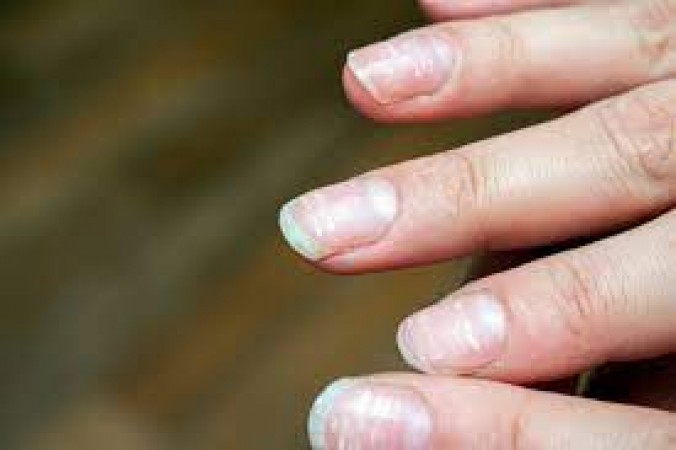
Iron is a crucial mineral that plays a pivotal role in maintaining our overall well-being. When the body lacks an adequate amount of iron, it can manifest in various signs and symptoms. Let's delve into the subtle cues that may indicate iron deficiency and how to identify them.
Iron deficiency occurs when the body doesn't have enough iron to produce sufficient red blood cells, leading to a condition known as anemia. Anemia can result in a range of symptoms affecting both physical and mental well-being.
Anemia, the primary consequence of iron deficiency, often goes unnoticed until symptoms become more pronounced. Recognizing these signs early can make a significant difference in addressing the deficiency promptly.
One of the earliest signs of iron deficiency is a persistent feeling of fatigue and weakness. Iron is essential for transporting oxygen to body tissues, and insufficient iron levels can lead to decreased energy levels.
A lack of iron affects the production of hemoglobin, the protein responsible for the red color of blood. This can result in pale skin and brittle nails, offering visible indicators of iron deficiency.
Inadequate iron impairs the oxygen-carrying capacity of red blood cells, causing shortness of breath even with minimal exertion. If you find yourself panting more than usual, iron levels might be a factor.
Iron deficiency can contribute to frequent and persistent headaches. The brain requires sufficient oxygen, and when circulation is compromised due to low iron, headaches may become more prevalent.
A curious manifestation of iron deficiency is the development of unusual cravings. If you find yourself inexplicably drawn to non-nutritive substances like ice or dirt, it could be your body's way of signaling a need for more iron.
Routine blood tests, including a complete blood count (CBC), can help identify iron deficiency before symptoms become severe. Regular check-ups are essential for maintaining overall health and catching deficiencies early on.
Being mindful of your dietary choices is crucial in preventing iron deficiency. Include iron-rich foods like red meat, poultry, beans, and leafy greens in your meals to ensure an adequate intake of this vital mineral.
In cases of severe iron deficiency, supplements may be recommended by healthcare professionals. However, it's crucial to consult with a doctor before self-prescribing supplements to avoid potential side effects.
Making intentional changes to your diet can have a positive impact on iron levels. Incorporating vitamin C-rich foods with iron-rich meals enhances iron absorption, promoting overall iron balance.
If symptoms persist or worsen, seeking guidance from a healthcare professional is imperative. They can conduct thorough assessments and recommend appropriate interventions tailored to your specific needs.
Maintaining a balanced diet that includes a variety of iron-rich foods is fundamental in preventing iron deficiency. Aim for a diverse range of nutrients to support overall health.
Cooking in iron utensils can contribute to the iron content of your meals. While this may not be a primary source, every bit adds up, especially when combined with other dietary measures.
Pregnant individuals have increased iron needs to support both their own health and that of the developing fetus. Regular prenatal check-ups should include monitoring for iron levels.
Growing bodies require adequate iron for proper development. Parents should be vigilant about their children's dietary habits and seek professional advice if any signs of deficiency appear.
Contrary to popular belief, iron deficiency can affect individuals regardless of their dietary preferences. While vegetarians may need to be more mindful, it's not exclusive to this group.
Caffeinated beverages like coffee and tea can inhibit the absorption of non-heme iron (found in plant-based foods). Consuming them in moderation and between meals can help mitigate this effect.
Incorporating regular exercise into your routine promotes overall circulation, ensuring that oxygen is efficiently transported throughout the body. This is beneficial for maintaining optimal iron levels.
Adequate hydration supports overall health, including the efficient transport of nutrients like iron. Ensure you drink enough water throughout the day to support your body's functions.
Raising awareness about the signs of iron deficiency through public health campaigns can empower individuals to recognize symptoms early on. Education is key in preventing and addressing this prevalent health concern.
Emphasizing the importance of regular health check-ups can contribute to early detection of iron deficiency and other health issues. Prevention and proactive management are vital for well-being.
In conclusion, understanding the signs of iron deficiency empowers individuals to take proactive steps towards maintaining optimal health. By being attentive to your body's signals, making informed dietary choices, and seeking professional guidance when needed, you can ensure a vibrant and iron-sufficient life.
India Assumes Four-Year Term on UN Statistical Commission
Arvind Panagariya Appointed Head of 16th Finance Commission: Key Details Inside
There are so many types of chaat available in India, not just one or two